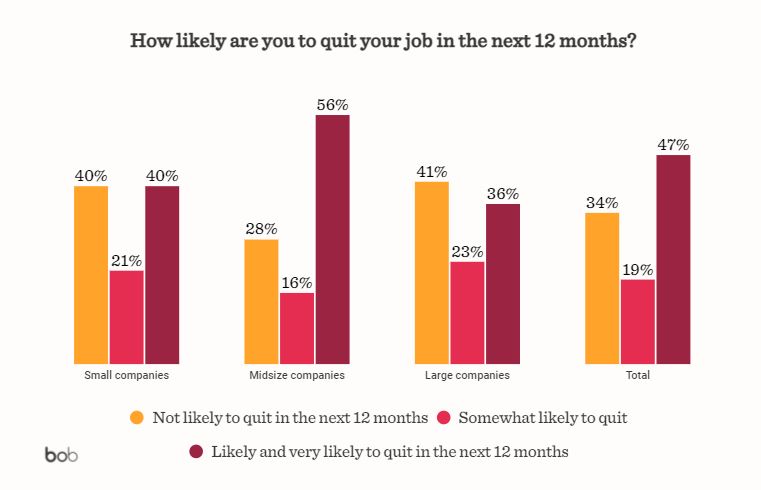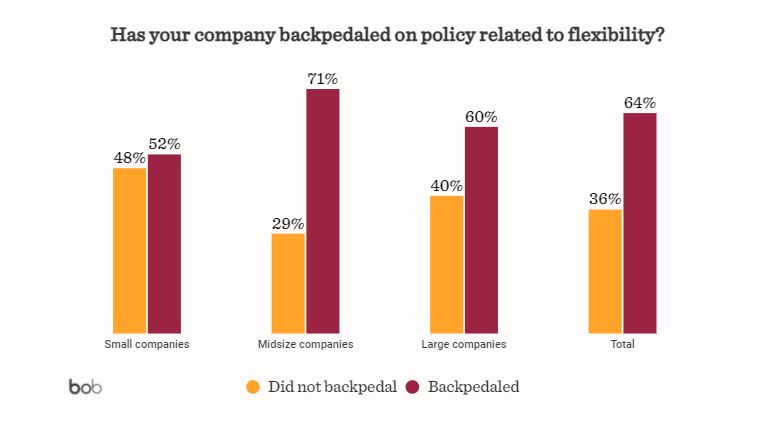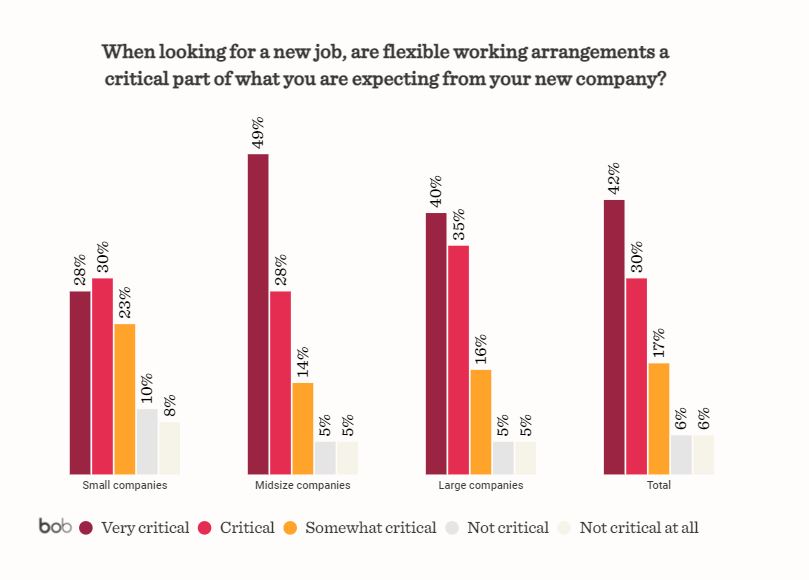HiBob: Lack of flexible working is fueling the ‘Great Resignation’
This is particularly the case in mid-sized companies with between 50 and 1,000 employees.
Why You Should Care
The 'Great Resignation' is underway.
According to a study by HiBob, the main cause is lack of flexibility about where employees work.
So what must HR do to retain and attract talent?
The ‘Great Resignation’ is upon us, especially in the US. But what is pushing employees to quit their jobs despite the economic crisis occurring on both sides of the pond?
According to a HiBob survey of 1,000 US employees aged over 25 who have worked remotely during the pandemic, 62% are keen to quit their jobs and 47% are likely or very likely to quit in the next 12 months.
This is primarily because of the desire for a better work-life balance, better pay or compensation, better benefits, including health insurance, and to have the option to continue to work remotely.
Interestingly, HiBob’s research found that mid-sized companies (those with 50 to 1,000 employees) had a higher turnover risk with 65% keen to quit, compared to 59% for small companies with less than 50 staff and larger companies with more than 1,000 employees.
In addition, while 40% of staff at small firms and 36% of workers at large companies, 56% of those working at mid-size companies are very likely or likely to quit in the next year.

Similarly, higher percentages of workers at mid-sized firms wanted to quit their job because they wanted a better work life balance, better pay, and better benefits.
In terms of pay, it is clear that employees at mid-sized companies are unhappy about pay since they are significantly (71%) more open to freelancing and extra work than those at small companies (53%) and large companies (49%).
These companies were at risk of losing their talent over a lack of flexible working. 53% of workers in mid-size companies said workplace flexibility was very important in the post pandemic workplace, compared to only 38% for small companies.
However, 71% of workers at mid-sized companies also stated that their HR teams has backtracked on flexible policies, compared to 60% at small companies and 52% of large companies.

So HiBob asked the survey respondents directly if their employer did not offer flexible working hours and location options – remember flexible working is more than just where you work, it is also when you work – if they would quit.
56% of those working at mid-sized companies said they would quit, compared to 32% for small companies and 37% for larger companies.

What should HR do?
So what should HR teams, particularly at mid-sized firms, do to stop this talent exodus in its tracks? HiBob’s study suggest that they need to focus on their flexible working models.
Therefore, HiBob’s vice-president of content experience Zoe Haimovitch concludes in her blog post: “HR leaders of mid-sized companies will have a difficult time, on the one hand, keeping their teams and, on the other hand, recruiting new team members if they don’t build a company culture that allows for flexible work models.
“It is not enough to offer flexible work in terms of location and working hours. The whole company needs to adjust to hybrid and flexible work arrangements.
“Work needs to be adjusted and managers need to be trained so their flexibility does not hinder performance and does not hurt promotion and career development.
“The hybrid work model needs to be adopted sincerely with the intention of accepting and embracing the new world of work.”
Sign up to the UNLEASH Newsletter
Get the Editor’s picks of the week delivered straight to your inbox!

Chief Reporter
Allie is an award-winning business journalist and can be reached at alexandra@unleash.ai.
-
Topics
COVID-19
Future of Work
